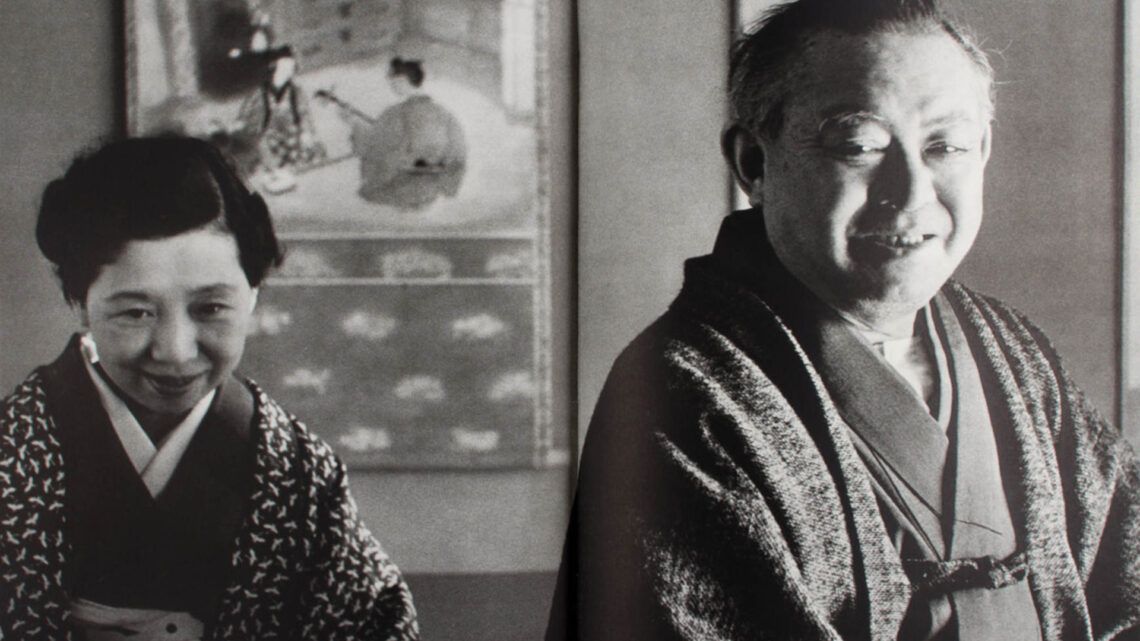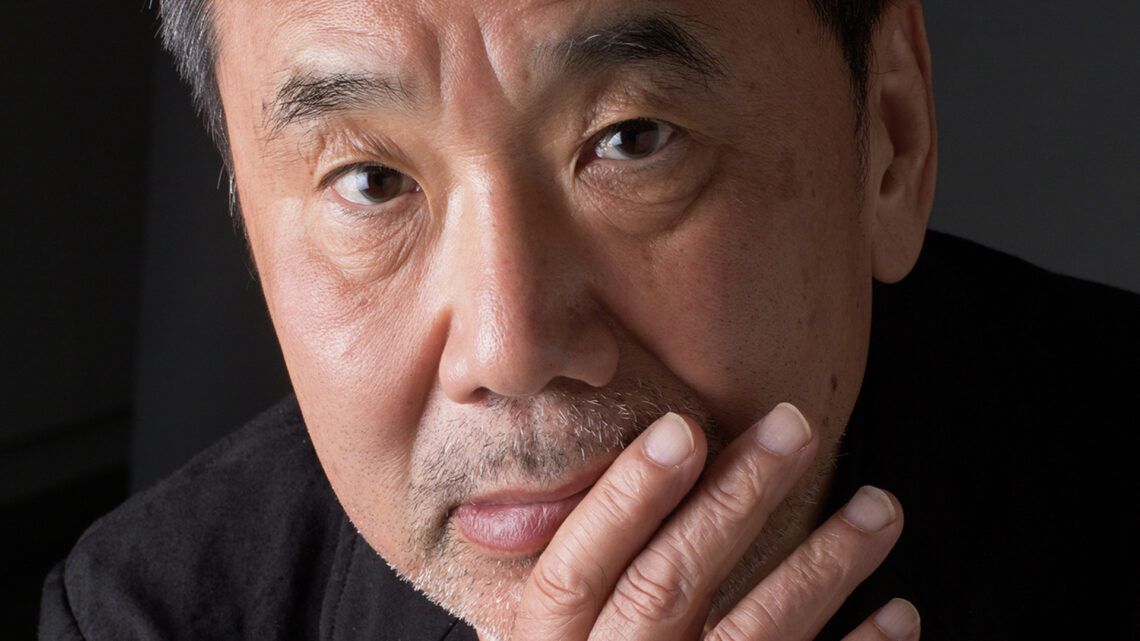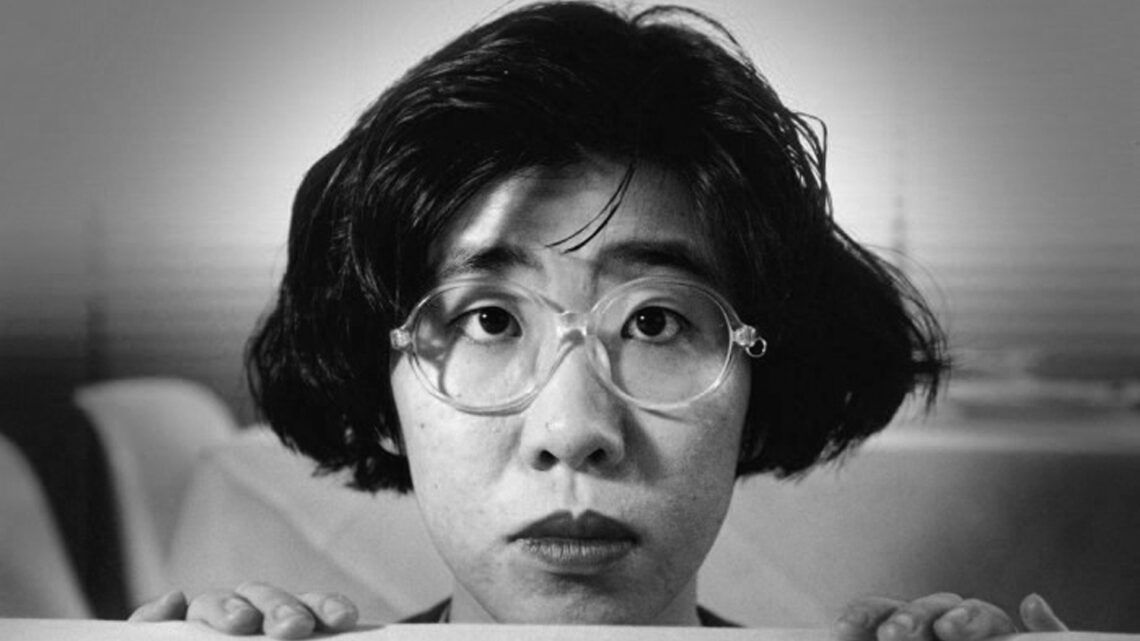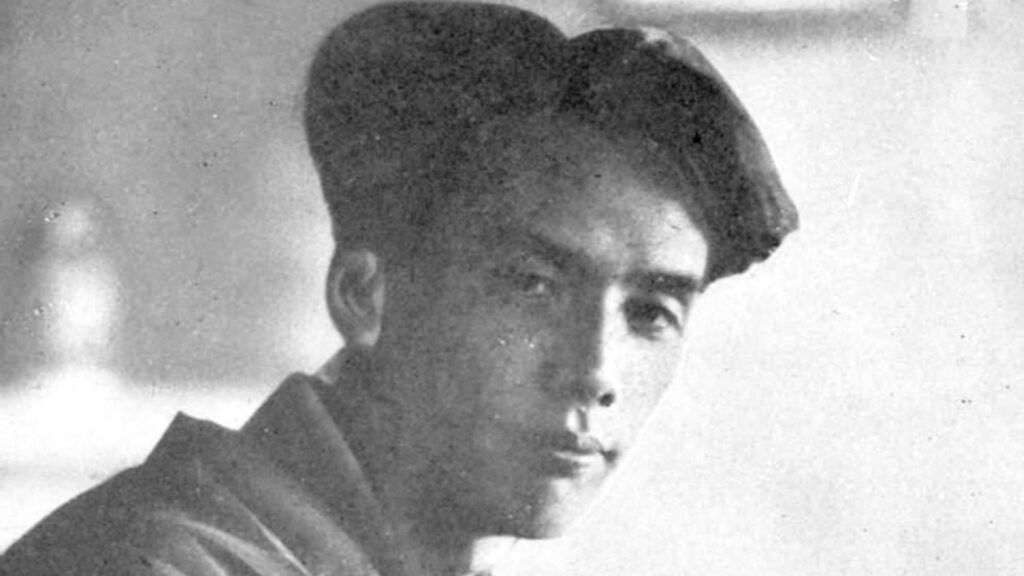
The Japanese writer Akutagawa Ryunosuke was a fascinating personality whose life and work continue to play a significant role in Japanese literary history to this day. Born on March 1, 1892, in Tokyo as the son of a wealthy merchant, he spent his childhood in a culturally rich environment that strongly influenced his later literary development. Akutagawa grew up during a time of rapid change as Japan increasingly opened up to the West, with traditional values merging with modern influences.
From an early age, Akutagawa showed an interest in literature and began writing his own stories. His talent was soon recognized, and he had the opportunity to study at the prestigious University of Tokyo, where he deepened his knowledge of classical Japanese literature and Western philosophy, which later greatly influenced his work. During his studies, he also began publishing his first short stories, revealing his exceptional literary skills.
After graduating, Akutagawa dedicated himself entirely to writing and published a series of works that quickly established him as one of the leading voices in Japanese literature. His stories were characterized by their depth, psychological sophistication, and keen observation, often drawing on historical events and literary motifs that he skillfully embedded in modern contexts.
One of Akutagawa’s masterpieces is undoubtedly the short story “Rashomon,” which was later adapted into a film by director Akira Kurosawa. In this story, Akutagawa explores human nature and the nature of truth itself, raising questions about the subjectivity of perception and memory through the portrayal of different perspectives on the same events.
Although plagued by mental health issues throughout his short life, Akutagawa tirelessly pursued his work, leaving behind an impressive literary legacy. His influence on subsequent generations of writers is undeniable, and his name is often mentioned in the same breath as other giants of world literature.
Akutagawa was not only a master of the written word but also a critical thinker who engaged deeply with the societal and cultural changes of his time. His essays and critical writings demonstrate a sharp intellect and a profound insight into human nature.
Despite his tragic end, Akutagawa left a legacy that extends far beyond his brief life. His works will continue to fascinate and inspire readers around the world in the future. Akutagawa Ryunosuke remains an icon of Japanese literature and a symbol of the infinite power of human imagination.
While his life may have been short, his words and ideas will live on forever, and his story will continue to touch and inspire generations of readers. Though Akutagawa Ryunosuke may no longer be among us, his legacy will never fade away.
The profound impact of Akutagawa’s work extends beyond the borders of Japan and is recognized in the global literary community. His stories have the ability to touch and move people of all ages and backgrounds, and his influences can be seen in the works of many international authors.
In his writings, Akutagawa often portrayed the darker aspects of human nature and the moral dilemmas we face. His stories are often imbued with a sense of melancholy that prompts the reader to contemplate life’s deepest questions.
Akutagawa was a master at capturing the complexity of the human psyche in his stories, prompting his readers to ponder the nature of good and evil, truth and falsehood, beauty and decay. His works are timeless and remain relevant today for those seeking deeper meaning in the world.
Despite his early death, Akutagawa left behind an amazing literary legacy that continues to expand the boundaries of Japanese literature to this day. His stories are not only captivating narratives but also sources of inspiration and reflection on the human experience.
Akutagawa’s narratives are infused with a deep emotional intensity that immediately resonates with the reader and remains in memory long after reading. His ability to create complex characters and situations makes him one of the most significant writers of his time.
The works of Akutagawa Ryunosuke are not only literary masterpieces but also a reflection of the society of his time. Through his stories, he managed to capture the social and cultural currents of his era and preserve them for future generations.
His contribution to Japanese literary history cannot be overstated, and his influence extends far beyond the borders of his homeland. Akutagawa Ryunosuke remains a fascinating figure whose work continues to touch the hearts and minds of readers around the world.
Despite his short life, Akutagawa left behind an amazing literary legacy that continues to expand the boundaries of Japanese literature to this day. His stories are timeless and have the ability to touch and inspire people of all ages and backgrounds.
His name will always be mentioned with respect and admiration in the world of literature, and his works will continue to fascinate and inspire generations of readers.
The work of Akutagawa Ryunosuke
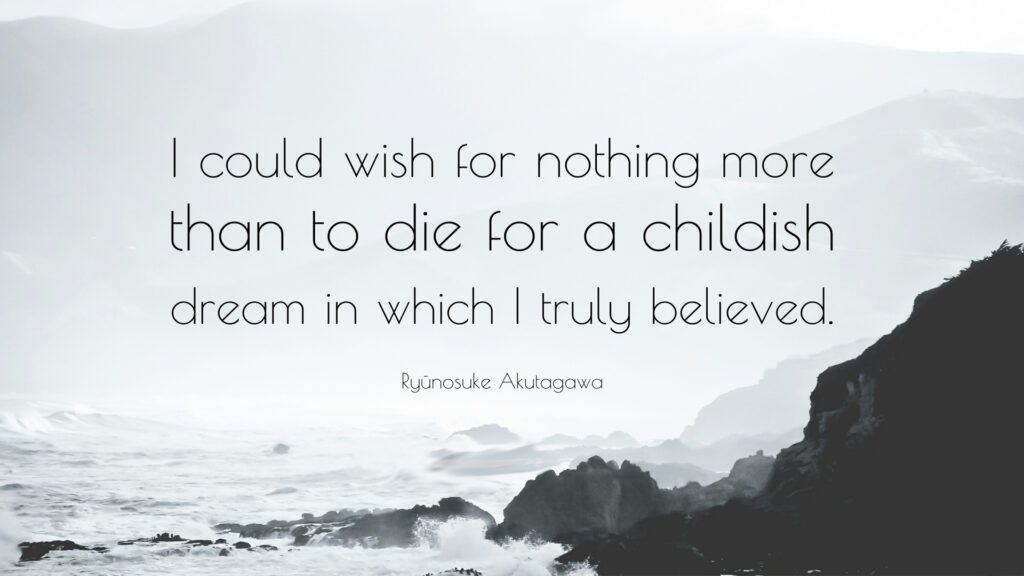
Akutagawa Ryunosuke left behind an extraordinary literary legacy that continues to fascinate and inspire to this day. His work is characterized by a unique combination of deep psychological insight, keen observational skills, and stylistic mastery.
His literary career gained momentum as he studied at the prestigious University of Tokyo, deepening his interest in classical literature as well as Western philosophy. This broad education is reflected in his work, which combines elements from various literary traditions and philosophical currents.
One of the most notable features of Akutagawa’s work is his ability to combine complex psychological character studies with concise and often symbolic language. In many of his stories, he explores the deepest abysses of the human soul by revealing the dark sides of human nature and the moral dilemmas we face.
An outstanding example of Akutagawa’s psychological acumen is the short story “In a Grove,” in which he records the thoughts and emotions of a man overwhelmed by a mysterious smell in a crowded tram. By describing what appears to be a mundane situation, Akutagawa succeeds in creating a profound meditation on human desire, the transience of life, and the search for meaning and identity.
Another striking feature of Akutagawa’s work is his masterful use of literary techniques such as irony, symbolism, and allegory. In stories like “Rashomon” and “In the Dark,” he employs these techniques to explore complex themes such as the nature of truth, the relativity of reality, and the fragility of human existence.
“Rashomon” is perhaps Akutagawa’s most famous story, later adapted into a groundbreaking film by director Akira Kurosawa. Set in the ruins of a once magnificent gate, the story tells of a crime and the conflicting reports of witnesses. By portraying different perspectives on the same events, Akutagawa raises questions about the subjectivity of perception and memory, as well as the possibility of an objective truth.
But not only in his fictional works, also in his essays and critical writings, Akutagawa’s sharp intellect and deep understanding of human nature shine through. In texts like “The Notebook of a Madman,” he reflects on his own experiences with mental instability while shedding light on the societal taboos and prejudices of his time.
Akutagawa’s work is characterized by an inexhaustible curiosity and an unyielding pursuit of artistic perfection. His stories are often imbued with a sense of melancholy that prompts the reader to contemplate life’s deepest questions and seek deeper meaning in the world.
Despite his short life, Akutagawa left an impressive literary legacy that continues to expand the boundaries of Japanese literature to this day. His works are not only captivating narratives but also sources of inspiration and reflection on the human experience.
Akutagawa Ryunosuke died on July 24, 1927, at the age of only 35, yet his influence on Japanese literature is enduring. His stories are timeless and have the ability to touch and inspire people of all ages and backgrounds.
His name will always be mentioned with respect and admiration in the literary world, and his works will continue to fascinate and inspire generations of readers. Though Akutagawa Ryunosuke may no longer be among us, his legacy will never fade away.
The profound impact of Akutagawa’s work extends beyond the borders of Japan and is recognized in the global literary community. His stories have the ability to touch and move people around the world, and his influence is evident in the works of many international authors.
Despite his early death, Akutagawa left an amazing literary legacy that continues to expand the boundaries of Japanese literature to this day. His stories are not only captivating narratives but also sources of inspiration and reflection on the human experience. Akutagawa’s narratives are timeless masterpieces that capture the human nature in all its facets. They invite the reader to contemplate the fundamental questions of life.
The most famous works of Akutagawa Ryunosuke:
“Rashomon” – This short story, later adapted into a film by director Akira Kurosawa, is perhaps one of Akutagawa’s most well-known works. It revolves around a crime and the contradictory reports of witnesses, raising questions about the subjectivity of perception and memory.
“In the Dark” – This story tells of a blind man who is deceived by a soul merchant and seeks revenge. It is another example of Akutagawa’s masterful command of symbolism and allegory.
“In a Grove” – This short story describes the thoughts and emotions of a man overwhelmed by a mysterious smell in a crowded tram. It is an impressive example of Akutagawa’s psychological acumen.
“The Diary of a Madman” – In this essay, Akutagawa reflects on his own experiences with mental instability while shedding light on the societal taboos and prejudices of his time.
“The Death Row Inmate” – This short story revolves around a man sentenced to death for a crime and his final hours spent in prison. It is a poignant portrait of human existence and the search for meaning and identity.
These works are just a few examples of Akutagawa’s versatile literary output and demonstrate his unique ability to address complex themes in a compelling and captivating manner.
“Rashomon” by Akutagawa Ryunosuke
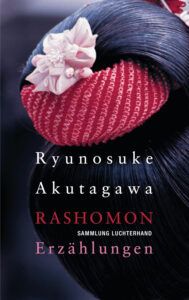
The short story “Rashomon” by Akutagawa Ryunosuke is undoubtedly one of his most famous works and has had a profound impact on literature and even the world of cinema. Originally published in 1915, this story has not lost any of its fascination and relevance to this day. It was later adapted into a film of the same name by director Akira Kurosawa, which gained worldwide attention and is considered a classic of cinema.
The word “Rashomon” comes from Japanese and refers to the Rashomon Gate in Kyoto. In Akutagawa’s short story “Rashomon,” the gate is depicted as a place where the shadows of society gather to conceal their dark secrets. In a broader context, “Rashomon” is often used to refer to situations where truth and reality are relative or can be interpreted differently from various perspectives.
“Rashomon” is set in feudal Japan and revolves around a crime that takes place at an abandoned gate. The story begins with a wanderer and a priest seeking shelter from a storm under the Rashomon Gate. There, they encounter a wretched man who works as a woodcutter and claims to have witnessed a terrible crime: the murder of a nobleman. However, what follows is a confusion of contradictory reports about the same events, presented by different witnesses.
What makes “Rashomon” so fascinating is the way Akutagawa questions the nature of truth itself. By portraying different perspectives on the same events, he raises questions about the subjectivity of perception and memory. Each witness provides a different version of the story, and none of them seems to correspond to objective reality.
The narrative skillfully explores the complexity of human motivations and the unreliability of human memory. Akutagawa shows how our own biases and self-deceptions can distort our view of the world and the truth. In doing so, he not only questions the nature of truth but also the moral integrity of people who tend to justify or conceal their own actions.
The title “Rashomon” refers to the gate under which the story takes place. Throughout the story, this gate is depicted as a place of decay and moral corruption, where the darkest sides of human nature are revealed. It becomes a symbol of the uncertainty and confusion that prevail in the world, as well as the relative nature of good and evil.
The significance of “Rashomon” extends far beyond the pages of the short story and has had a profound impact on Japanese culture and beyond. The term “Rashomon effect” is used today to describe the phenomenon where different witnesses to a situation can provide different and often contradictory accounts.
The adaptation of “Rashomon” by Akira Kurosawa into a film in 1950 further contributed to the popularity and fame of the story. The film, which impressed with its innovative storytelling style and visual aesthetics, won the Golden Lion at the Venice Film Festival and was celebrated worldwide as a masterpiece of cinema.
“Rashomon” by Akutagawa Ryunosuke remains a timeless masterpiece that captures the complexity and contradictions of human nature. It is a story about the unreliability of memory and perception, the fragility of truth, and the dark depths of the human soul. And yet, it is also a story of hope and the possibility of finding a path to understanding and reconciliation despite all the uncertainty and confusion that surround the world.
Reading “Rashomon” is a captivating and enriching experience that prompts the reader to contemplate life’s fundamental questions and to question their own view of the world. It is a masterpiece of Japanese literature that continues to fascinate and inspire readers around the world even today.
Kurosawa’s Adaptation of “Rashomon”
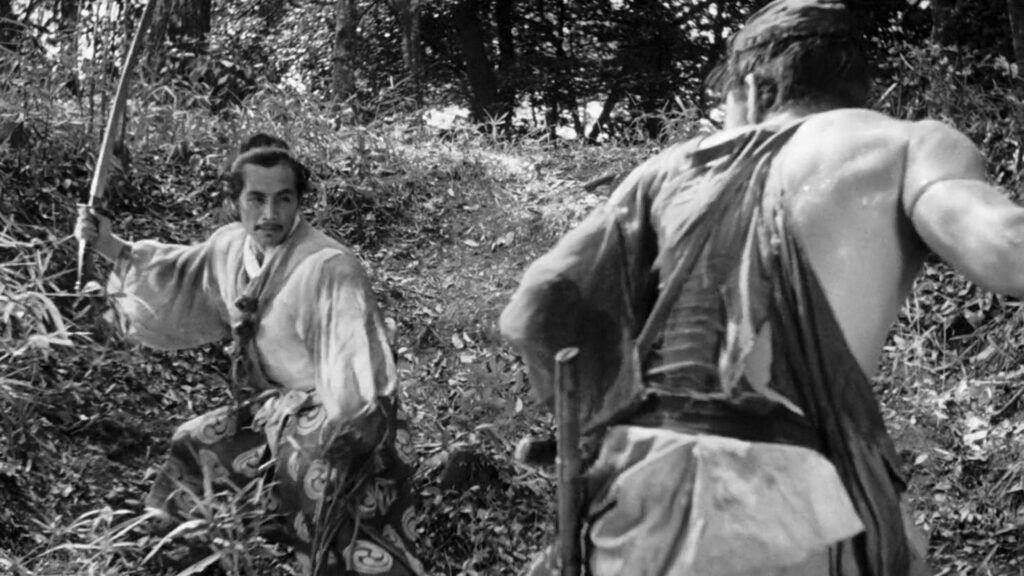
The adaptation of “Rashomon” by the renowned Japanese director Akira Kurosawa in 1950 marked a milestone in the history of cinema and helped bring Akutagawa Ryunosuke’s story of the same name to a global audience. Kurosawa’s adaptation was not only a faithful interpretation of the literary source but also an independent artistic creation that impressed with its innovative storytelling style and visual aesthetics.
The plot of Kurosawa’s “Rashomon” remains true to the basic structure of Akutagawa’s short story by depicting the events surrounding the murder of a nobleman and the contradictory reports of the witnesses. The film begins with a framing story in which a woodcutter, a priest, and a wanderer seek shelter from a storm under the Rashomon Gate. While seeking shelter there, they exchange thoughts about human nature and the nature of truth, preparing the viewer for the subsequent narratives.
What makes Kurosawa’s adaptation of “Rashomon” particularly noteworthy is its innovative narrative structure, which highlights the various perspectives of the witnesses to the events. Instead of relying on a linear narrative, Kurosawa uses a series of flashbacks and memories that prompt the audience to question the truth behind the different accounts.
Each witness presents their own version of events, and none of them seems to correspond to objective reality. This complexity and ambiguity gives the film a captivating and gripping atmosphere that prompts the viewer to contemplate the nature of truth and the unreliability of human perception.
The visual aesthetics of “Rashomon” are another outstanding feature of the film. Kurosawa masterfully uses light and shadow, composition, and camerawork to create a dark and oppressive atmosphere that underscores the moral ambiguity of the story.
Furthermore, the performances of the actors in “Rashomon” are of the highest quality. Toshiro Mifune, who starred in many of Kurosawa’s films, brilliantly portrays the bandit Tajomaru, bringing to the character a fascinating blend of charisma and depth. The performances of Machiko Kyo as the nobleman’s wife and Masayuki Mori as the nobleman himself also significantly contribute to the film’s success.
“Rashomon” was celebrated by critics and won the Golden Lion at the Venice Film Festival in 1951, helping to make it internationally known. The film’s success not only helped solidify Kurosawa’s reputation as one of the most significant directors of his time but also sparked interest in Japanese culture and filmmaking among Western audiences.
However, the significance of “Rashomon” extends far beyond its awards and commercial success. The film has had a lasting impact on the world of cinema and has become a milestone in cinema history, influencing generations of directors and filmmakers. Its innovative narrative style and visual aesthetics have profoundly changed filmmaking and inspired countless filmmakers.
Furthermore, “Rashomon” continues to raise important questions about the nature of truth and the subjectivity of human perception that are still relevant today. The “Rashomon effect,” which describes the phenomenon where different witnesses to a situation can provide different and often contradictory reports, has become a term that extends far beyond the boundaries of the film and is applied in various disciplines such as psychology and law.
Overall, Kurosawa’s adaptation of “Rashomon” remains a timeless masterpiece that continues to fascinate and inspire even today. Through its innovative narrative structure, visual aesthetics, and profound themes, the film has earned a permanent place in the history of cinema and world culture.
My Conclusion:
Akutagawa Ryunosuke was undoubtedly one of the most influential and significant writers in the history of Japanese literature. His life and work have shaped and inspired not only the literary landscape in Japan but also worldwide. Born on March 1, 1892, in Tokyo into an affluent family, Akutagawa had early access to education and cultural diversity that significantly influenced his later literary development.
From a young age, Akutagawa showed exceptional literary talent, beginning to write and publish his own stories. His early interest in literature led him to study at the prestigious University of Tokyo, where he deepened his knowledge of classical Japanese literature and Western philosophy. This broad education was reflected later in his work, which combined elements from various literary traditions and philosophical currents.
But not only “Rashomon,” other works by Akutagawa, such as “In the Dark” and “In the Grove,” also demonstrate his unique talent and artistic vision. His stories are imbued with a deep emotional intensity that immediately resonates with the reader and remains in memory long after reading.
However, Akutagawa was not only a gifted writer but also a critical thinker who engaged deeply with the social and cultural changes of his time. His essays and critical writings attest to a sharp intellect and a deep insight into human nature.
Despite his tragic death in 1927, Akutagawa left an impressive literary legacy that continues to expand the boundaries of Japanese literature to this day. His influence extends far beyond his short life and continues to inspire writers worldwide.
The legacy of Akutagawa Ryunosuke is undeniable: he was a master of language who captured the human soul in all its complexity and offered his readers a new perspective on the world. His works are timeless and will continue to fascinate and inspire readers around the world in the future.

